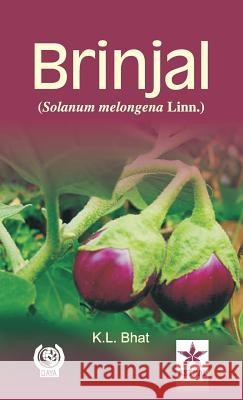Brinjal » książka
Brinjal
ISBN-13: 9788170359784 / Angielski / Twarda / 2011 / 224 str.
Brinjal (Baigan) is a native plant and is widely used in Indian cuisine. It is a popular vegetable grown extensively in almost all over the world. It occupies third position amongst vegetable crops. India's brinjal economy is estimated to be close to $2 billion, with millions of farmers cultivating it annually in nearly 5, 50, 000 hectares. Its production contributes not only to food nutrition security but also to poverty alleviation. It is easy to grow and earns higher returns without involving any extra skill. There was a long felt need of the research and development in this field for vegetable growers, to have an access to the latest agro-techniques in brinjal cultivation. It will therefore, this book answer their requirements by providing a comprehensive picture on brinjal as a economic crop, its research accomplishments and future potentialities. Origin and distribution, climatic adaptations, nutrition, economic importance and therapeutic value, taxonomy, botany, genetics, improved varieties, cultural description, seed production and control of pests and diseases are the major areas of review. Every effort has been made to cover as much information as possible. This book will be of immense use for students, research and extension workers engaged in the science of brinjal cultivation.
Brinjal (Baigan) is a native plant and is widely used in Indian cuisine. It is a popular vegetable grown extensively in almost all over the world. It occupies third position amongst vegetable crops. Indias brinjal economy is estimated to be close to $2 billion, with millions of farmers cultivating it annually in nearly 5, 50, 000 hectares. Its production contributes not only to food nutrition security but also to poverty alleviation. It is easy to grow and earns higher returns without involving any extra skill. There was a long felt need of the research and development in this field for vegetable growers, to have an access to the latest agro-techniques in brinjal cultivation. It will therefore, this book answer their requirements by providing a comprehensive picture on brinjal as a economic crop, its research accomplishments and future potentialities. Origin and distribution, climatic adaptations, nutrition, economic importance and therapeutic value, taxonomy, botany, genetics, improved varieties, cultural description, seed production and control of pests and diseases are the major areas of review. Every effort has been made to cover as much information as possible. This book will be of immense use for students, research and extension workers engaged in the science of brinjal cultivation.











